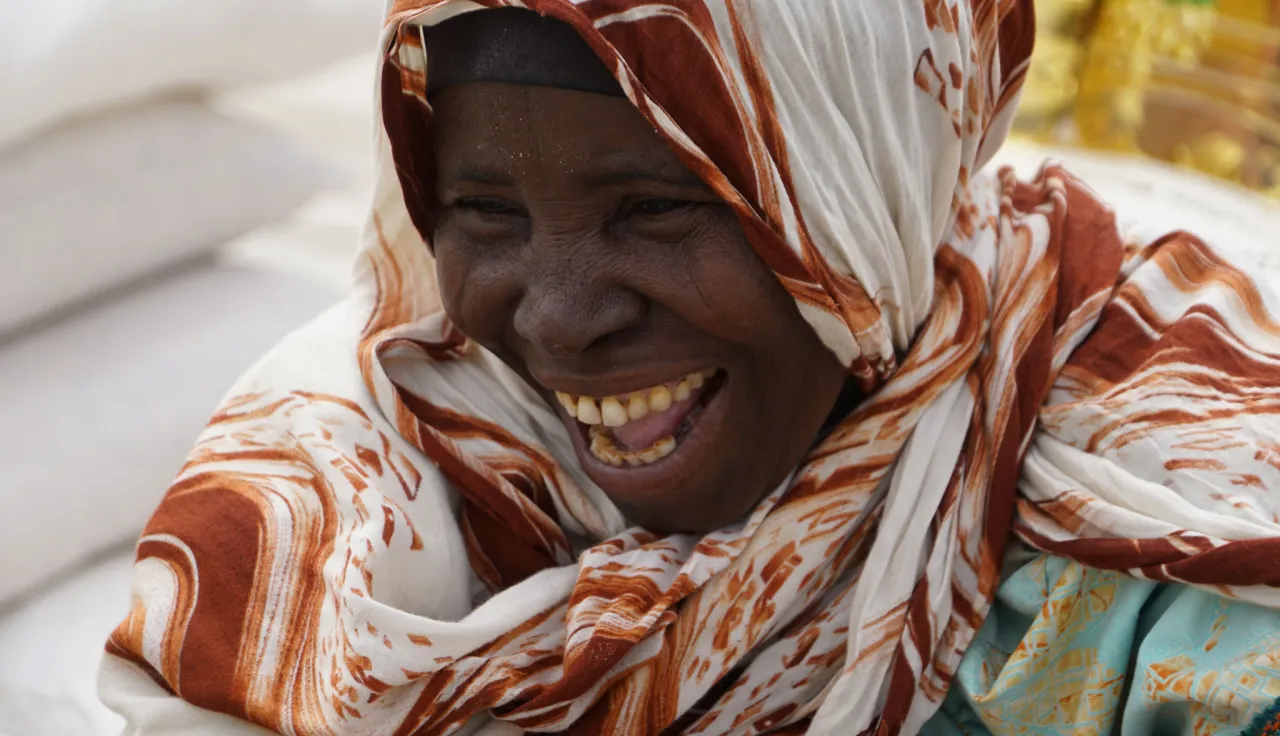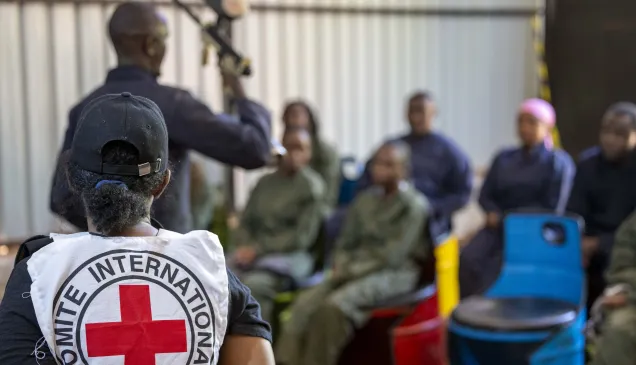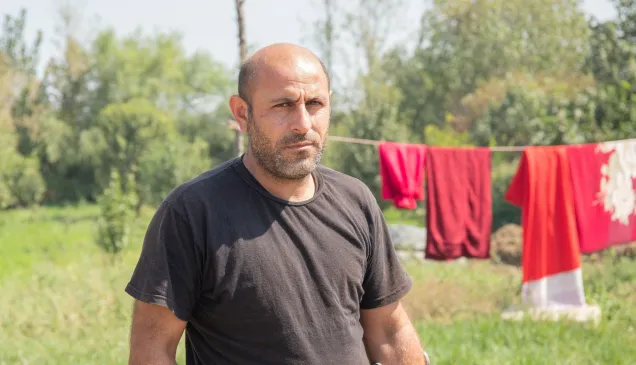Red Rose: The tech behind our humanitarian assistance in Nigeria

This software is helping us improve our delivery of assistance to thousands of households
Hassana stands in a line in front of an ICRC warehouse on the outskirts of Maiduguri, the capital of Borno state. When it gets to her turn, she hands over an encrypted smart card to the vendor, who uses the card to verify her biodata via the software called Red Rose, installed on his Sony phone.
The verification process tells the vendor who Hassana is, the number of items she is entitled to receive as part of the ICRC's assistance programme, and the number of rounds she has left. Less than ten minutes later, Hassana leaves the vendor's shop with enough items that will feed her family of 14 for the next two weeks.

Hassana prepares to leave the vendor's warehouse with her food items after her details and assistance entitlement were verified through the Red Rose software. CC BY-NC-ND / ICRC / Adavize Baiye
In another part of Maiduguri, another beneficiary gets the details of his smart card verified by a staff of an ICRC approved bank and walks away with enough cash to take care of his needs for the month. Over 30,000 people have been assisted with three rounds of cash disbursement since May 2017. Those who missed a round can make up for it at the next distribution.
Enhancing humanitarian response
The protracted nature of the conflict, the increase of humanitarian actors in Nigeria's north-east, as well as the demand for accurate data of the needs of people most-affected by the conflict continually calls for new and improved ways to ensure that funds are dispensed in a way that most impacts the vulnerable population.

The Red Rose system improves our humanitarian assistance by cutting down the time it takes to go through the registration process. CC BY-NC-ND / ICRC / Adavize Baiye
This is exactly what the Red Rose platform does by cutting down the time of registration as well as improving the delivery time for assistance to beneficiaries. The ICRC's Red Rose project which started as a pilot study in Maiduguri in May, 2017 has so far succeeded in disbursing 1.3 million Swiss francs; by mid-October, the basic needs of over 5000 households have been met.
Prior to the Red Rose system, the distribution process took an average of 5 hours with large crowds. And with people waiting in long lines, it could take even longer. These days, it takes an average of 25 minutes to organise the crowd and a maximum of ten minutes per person to collect their cash or items. The people we assist can also choose not to queue, but rather go anytime they like, just like walking into their local shop to pick up what they need as long as they have their Red Rose smart card.
The Red Rose is a complete data verification system that provides an end-to-end solution for all modalities of cash transfer programming. With the increase in cash-based responses to humanitarian needs, it becomes imperative to explore existing technologies to facilitate the process.
Since 2016, the ICRC has been gradually replacing the emergency food distributions with the assistance consisting of cash or agricultural inputs. According to Mohamed Sheikh-Ali, the ICRC's head of Economic Security department in Nigeria: "Disbursing cash is the best way to empower people and help the local economy back on its feet in areas affected by the conflict where markets are functional. It gives people a choice to decide what they need most". That power to make their own decisions is for many a very first step on the journey to restore livelihoods.



